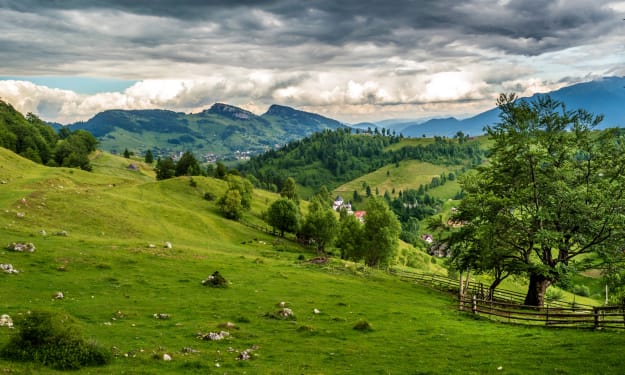Belize: A Comprehensive History of Resilience and Diversity
From Ancient Maya Civilization to Modern Sovereignty: The Rich Tapestry of Belize's Past
Belize, a small Central American nation on the Caribbean coast, has a rich and multifaceted history that encompasses ancient civilizations, colonial conquests, and modern-day sovereignty. From the rise and fall of the Maya civilization to the complex colonial period and eventual independence, Belize's history is a testament to the resilience and adaptability of its people. This detailed exploration delves into the significant events, cultures, and transformations that have shaped Belize over the centuries.
**Ancient Maya Civilization:**
The history of Belize begins with the ancient Maya civilization, which flourished from around 2000 BCE to the arrival of Europeans in the 16th century. The Maya established powerful city-states throughout the region, including notable sites such as Caracol, Lamanai, and Xunantunich. These cities were centers of trade, politics, and culture, connected by a vast network of roads and rivers.
The Maya in Belize developed advanced agricultural techniques, constructed impressive architectural structures, and made significant contributions to mathematics, astronomy, and writing. At its peak, Caracol was a major political and economic hub, rivaling other prominent Maya cities like Tikal and Calakmul. However, by the end of the 9th century, many Maya city-states in Belize and surrounding regions began to decline due to factors such as warfare, environmental changes, and social upheaval.
**European Exploration and Colonization:**
European contact with Belize began in the early 16th century with Spanish explorers, although the Spanish were more focused on other parts of the Americas. The dense forests and formidable Maya resistance deterred significant Spanish settlement. Nonetheless, the Spanish made attempts to subjugate the local Maya populations and claim the territory for the Spanish Crown.
In the 17th century, British buccaneers and logwood cutters, known as Baymen, began to settle along the coast and rivers of Belize. The Baymen extracted valuable hardwoods such as logwood and mahogany, which were in high demand in Europe. These early British settlers faced resistance from both the Spanish, who periodically attempted to assert control, and the indigenous Maya.
**Colonial Conflicts and British Settlement:**
The 18th century saw increased tensions and conflicts between the British and Spanish over control of Belize. Despite several Spanish military campaigns aimed at expelling the British, the settlers managed to hold their ground. The Treaty of Paris in 1763 and the Convention of London in 1786 allowed the British to continue logging in the area but under Spanish sovereignty.
The decisive moment for British control came in 1798 during the Battle of St. George's Caye, when a small British force, along with their African slaves, defeated a much larger Spanish fleet. This victory solidified British presence in Belize, although it wasn't officially recognized as a British colony until much later.
**Formation of British Honduras:**
In 1862, Belize was formally declared a British colony known as British Honduras. This period saw the expansion of the logging industry and the establishment of a more structured colonial administration. The population grew with the arrival of various groups, including Garifuna, Mestizos, Creoles, and East Indians, contributing to the region's ethnic and cultural diversity.
The colonial economy relied heavily on the export of timber, but this industry faced challenges due to over-exploitation and competition from other regions. The colony also faced social and economic inequalities, with a small European elite controlling much of the wealth and political power.
**Path to Independence:**
The early 20th century brought significant political and social changes to British Honduras. The labor movement gained momentum, with workers demanding better wages and working conditions. The Great Depression of the 1930s exacerbated economic hardships, leading to increased activism and calls for reform.
In 1950, the People's United Party (PUP), led by George Cadle Price, emerged as the dominant political force advocating for self-government and independence. Price and the PUP campaigned vigorously for political and economic reforms, culminating in the attainment of internal self-government in 1964. George Price became the country's first Premier, laying the groundwork for full independence.
**Independence and Modern Era:**
On September 21, 1981, Belize achieved full independence from Britain, with George Price serving as the first Prime Minister of the newly sovereign nation. Despite independence, Belize faced ongoing territorial claims from Guatemala, which did not recognize Belize's borders established during the colonial period. This dispute has persisted, although efforts at negotiation and international mediation continue.
Since independence, Belize has worked to diversify its economy, traditionally reliant on agriculture and forestry. Tourism has become a major industry, capitalizing on the country's natural beauty, rich cultural heritage, and archaeological sites. The discovery of offshore oil reserves has also contributed to economic development.
Belize has maintained a stable democratic political system, with regular elections and peaceful transitions of power. The country is known for its commitment to environmental conservation, with extensive protected areas and marine reserves. Belize has played an active role in regional organizations such as the Caribbean Community (CARICOM) and the Central American Integration System (SICA).
**Cultural Heritage:**
Belize's cultural heritage is a vibrant blend of influences from its diverse population. The Creole culture, rooted in the African and European heritage of the early settlers, plays a central role in Belizean identity. The Garifuna people, descendants of African and indigenous Carib and Arawak, have preserved their unique language, music, and traditions, recognized by UNESCO as an Intangible Cultural Heritage of Humanity.
The Maya communities in Belize continue to maintain their traditional practices, languages, and ceremonies, contributing to the country's cultural diversity. Mestizo culture, combining Spanish and indigenous elements, is also prominent, especially in the northern regions of the country.
**Challenges and Future Prospects:**
Despite its achievements, Belize faces several challenges, including economic inequality, crime, and the impacts of climate change. The country is vulnerable to hurricanes and other natural disasters, which pose risks to its infrastructure and economy. Environmental degradation, particularly deforestation and coral reef damage, threatens Belize's biodiversity and natural resources.
Efforts to address these challenges include sustainable development initiatives, investment in education and healthcare, and strengthening regional and international partnerships. Belize's commitment to preserving its cultural and natural heritage remains a cornerstone of its national identity and a key to its future prosperity.
**Conclusion:**
Belize's history is a testament to the resilience and adaptability of its people. From the grandeur of the ancient Maya civilization to the struggles and triumphs of colonial and post-colonial eras, Belize has navigated a complex and dynamic historical landscape. Today, as an independent nation, Belize continues to draw upon its rich heritage and diverse cultural traditions to build a sustainable and inclusive future for all its citizens.






Comments
There are no comments for this story
Be the first to respond and start the conversation.